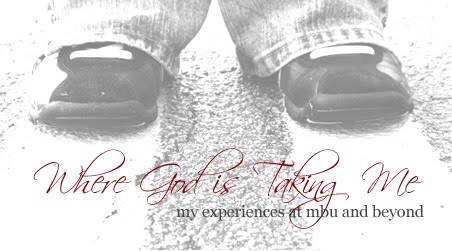Recently on Facebook, I posted as my status something about Deuteronomy 15 and said that I would probably blog about it. I've decided to post my journal entry from that chapter. Here it is:
Deuteronomy 15
This chapter is rich--far better than a smooth cup of coffee. :) These laws focus on love for one's neighbor through providing for his needs and love for God through sacrificing firstborn animals to Him and obeying His commands.
In the first paragraph (vv. 1-6), Moses explains the law of the sabbatical year and its appending promise. Every seventh year an Israelite was to forgive his brother's debt, no matter the amount. (His brother was any other Israelite.) If Israel obeyed God's commands, God's promise was that there would be no poor among her.
God shows great wisdom and kindness in this law and in blessing Israel with physical prosperity. He certainly knows economics better than we do, and He had a plan for helping the poor and, through that, the nation as a whole.
On the flip side of blessed obedience (and showing love for God) is cursed disobedience (expressing hatred to God). Chapter 28, verses 40-44 explains the consequences for not obeying God's laws: Israel herself would sink into poverty and would be overcome by a distant nation. She would no longer lend to others but would be ruled by others. Verses 11-12 suggest that Israel would eventually disobey and that the poor would always be with them. Ch. 28 confirms this. Jesus refers to this in Matthew 26:11, after the disciples complain that Mary has wasted her oil by pouring it on Jesus' head. His allusion to Deut. 15:11 seems like a slap in the face to the disciples, for it would probably remind them that Israel's hardened heart brought forth the poor. Verse 11 says, "You shall open wide your hand to your brother, to the needy and to the poor, in your land." Isn't that what God does for us (Ps. 145:15-16; 1 Pet. 1:3-14)? Aren't we supposed to mirror our God in Christ (Eph. 5:1-2; cf. 2 Cor. 6:11-13)? Let us give freely, supplying for physical needs and spiritual needs, as Christ enables. We are not to give grudgingly or be greedy (next paragraph in regards to releasing slaves). We are to be cheerful givers, like our Lord Jesus Christ.
Finally, our dedication to the Lord is to be pure. God commanded Israel to give to Him their firstborn animals without blemish or defect at His place with everyone. We, in the same way, are to offer ourselves as living sacrifices (Rom. 12:1-2). This idea of eating to the Lord is wonderful. It points forward to the church in its corporate worship and fellowship. Zooming out, these laws in Ch. 15 appear as precursors to New Testament instruction--or, more accurately, the New Testament continues the Old Testament's train of thought. We see here that paradoxical "new commandment is an old commandment" of John's and the exact agreement of Jesus and the OT Scriptures.
Finally, so interesting, story group discussed last night not letting the right hand know what the left hand is doing in Matthew 6:1-13. Also, don't give in public with a hypocrite's motive. These laws in Ch. 15 get at the same heart level as Matthew 6 ("Sermon on the Mount," Matt. 5-7). Give freely. We should focus on the Lord, be wrapped up in His manifold excellencies, and forget any desire self-praise or self-sufficiency. That is pure devotion and living sacrifice, and what best pleasures are hidden therein! Let's uncover them like buried treasure!




